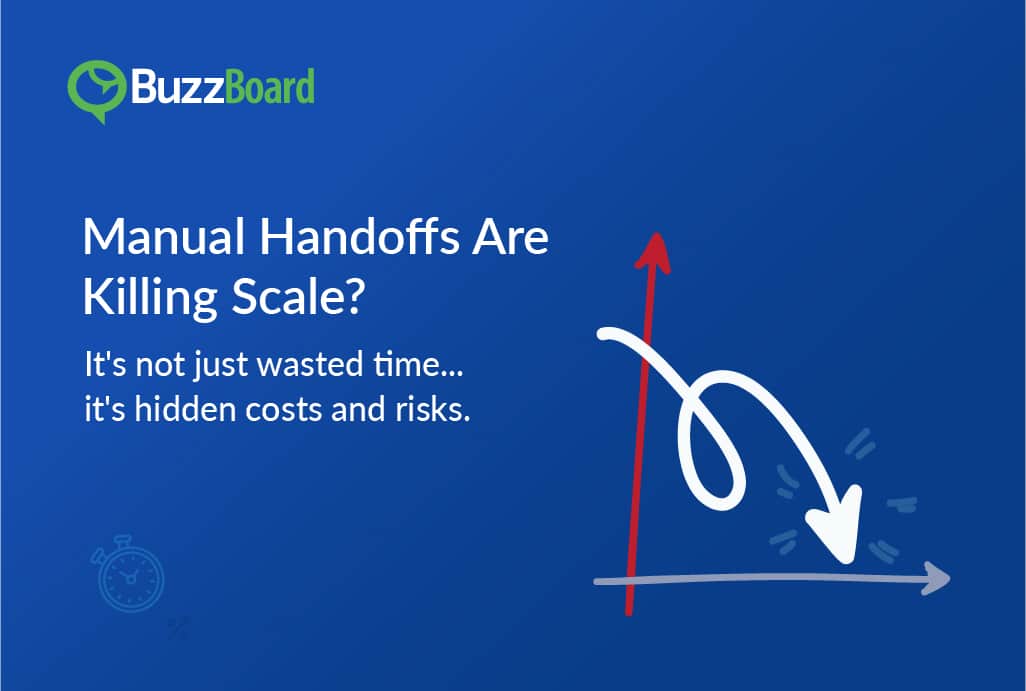AI orchestration for
SMB-focused marketing providers
serving thousands of customers
BuzzBoard’s AI Agents unite sales, fulfillment, and retention in one flow so you can double revenue without adding headcount.
Sell
Start qualified sales conversations with ideal SMBs, with zero prep time.
Deliver
Make personalized marketing for thousands of SMBs both possible and profitable.
Retain
Make every client feel like your only client, even at massive scale.
Built for high‑volume SMB marketing reality
repeatable wins.
Instant SMB sales intelligence
- Generate client‑ready ads, posts, emails & SEO pages—brand‑perfect, every time
- Launch multi‑channel campaigns for thousands of SMBs in a single click
- Boost margins by eliminating rework and extra headcount
- Launch thousands of hyper‑personalized cadences in minutes
- Turn every pitch into a data‑backed SMB consultation
- Close deals faster with AI‑written messaging proven to convert
Scale flawless campaigns
both possible and profitable.
- Generate client‑ready ads, posts, emails & SEO pages—brand‑perfect, every time
- Launch multi‑channel campaigns for thousands of SMBs in a single click
- Boost margins by eliminating rework and extra headcount
- Generate client‑ready ads, posts, emails & SEO pages — brand‑perfect, every time
- Launch multi‑channel campaigns for thousands of SMBs in a single click
- Boost margins by eliminating rework and extra headcount
Make renewals automatic
- Generate client‑ready ads, posts, emails & SEO pages—brand‑perfect, every time
- Launch multi‑channel campaigns for thousands of SMBs in a single click
- Boost margins by eliminating rework and extra headcount
- Deliver frictionless onboarding that builds instant trust
- Convert performance data into value stories that lift renewals by 20%
- Surface timely upsell recommendations to expand each account
What makes BuzzBoard different
 SMB Data Core
SMB Data Core
- ~ 30M U.S. + international SMB profiles
- ~ 6K attributes each (spend, tech stack, web, ads, social)
- Weekly refresh cadence
 SMB Data Core
SMB Data Core
Reps, strategists, and AMs start with a 360° view — no manual research or list vendors required.
 Per‑SMB Micro‑Models
Per‑SMB Micro‑Models
- Trained on millions of campaigns + sales calls across 500+ verticals
- Generates ads, posts, email, SEO copy by channel rules
- Includes brand-lock and audit log
 Per‑SMB Micro‑Models
Per‑SMB Micro‑Models
Channel‑ready assets in seconds, aligned to each client’s sector and maturity — no prompt engineering.
 Honeycomb Workflow
Honeycomb Workflow
- APIs: REST + GraphQL
- Security: SOC 2 Type II · GDPR
- Multi‑tenant and white‑label ready
 Honeycomb Workflow
Honeycomb Workflow
One system replaces 6+ point tools and integrates with existing stacks.
 Closed‑Loop Learning
Closed‑Loop Learning
- Ingests opens, clicks, and conversions daily
- Micro‑models retrain continuously using the latest performance data
 Closed‑Loop Learning
Closed‑Loop Learning
Copy and targeting improve automatically over time — no separate A/B tooling needed.
Why leading providers bet on
BuzzBoard’s SMB-first system
SMB‑only intelligence graph
Proprietary insight on 30M+ small businesses with hyper‑local digital signals.Target with context, not guesswork.
AI that shows its work
Diagnoses gaps, recommends next steps, and generates channel‑ready assets — with rationale you can review and outputs you can edit.
Beyond insights: from data to doing
Launch email, calls, chat, and tasks directly from an audit — turn “know” into done inside the same workflow.
Unified life cycle, zero manual handoffs
Every team pulls from the same data and history — no context switching, no re‑entry — so time‑to‑value accelerates and quality rises.
Built for SMB digital channels
Execute end‑to‑end across ads, SEO, listings, reviews, and websites — with playbooks and measurement mapped to each channel.
